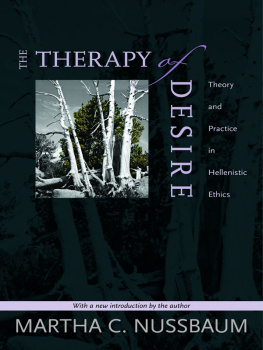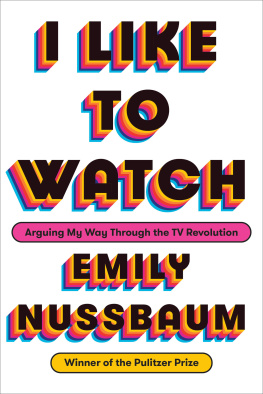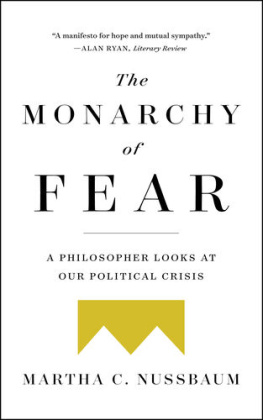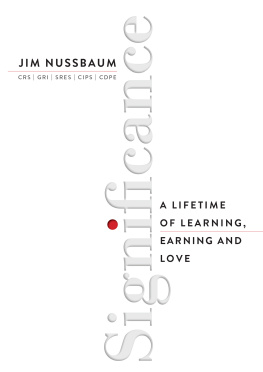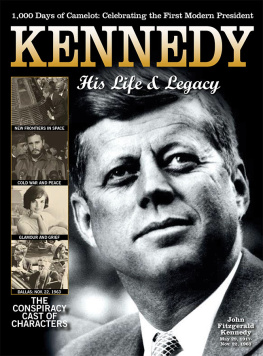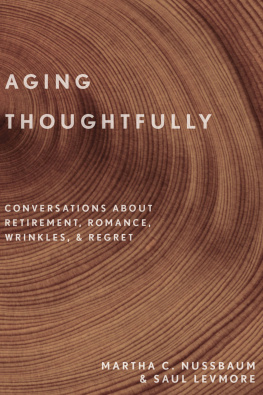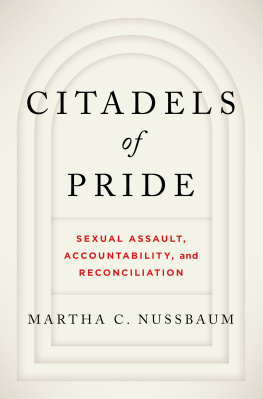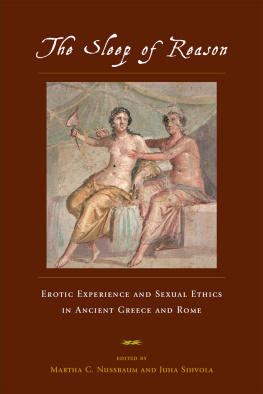Nussbaum - Not for Profit
Here you can read online Nussbaum - Not for Profit full text of the book (entire story) in english for free. Download pdf and epub, get meaning, cover and reviews about this ebook. year: 2010, publisher: Princeton University Press, genre: Politics. Description of the work, (preface) as well as reviews are available. Best literature library LitArk.com created for fans of good reading and offers a wide selection of genres:
Romance novel
Science fiction
Adventure
Detective
Science
History
Home and family
Prose
Art
Politics
Computer
Non-fiction
Religion
Business
Children
Humor
Choose a favorite category and find really read worthwhile books. Enjoy immersion in the world of imagination, feel the emotions of the characters or learn something new for yourself, make an fascinating discovery.

Not for Profit: summary, description and annotation
We offer to read an annotation, description, summary or preface (depends on what the author of the book "Not for Profit" wrote himself). If you haven't found the necessary information about the book — write in the comments, we will try to find it.
Not for Profit — read online for free the complete book (whole text) full work
Below is the text of the book, divided by pages. System saving the place of the last page read, allows you to conveniently read the book "Not for Profit" online for free, without having to search again every time where you left off. Put a bookmark, and you can go to the page where you finished reading at any time.
Font size:
Interval:
Bookmark:
NOT FOR PROFIT

The Public Square Book Series
PRINCETON UNIVERSITY PRESS
MARTHA C . NUSSBAUM
With a new afterword by the author

WHY DEMOCRACY
Needs
THE HUMANITIES


Copyright 2010 by Princeton University Press
Published by Princeton University Press,
41 William Street, Princeton, New Jersey 08540
In the United Kingdom: Princeton University Press, 6 Oxford Street,
Woodstock, Oxfordshire OX20 1TW
press.princeton.edu
All Rights Reserved
Fourteenth printing, and first paperback printing,
with a new afterword, 2012
Paperback ISBN 978-0-691-15448-0
The Library of Congress has cataloged the cloth edition of this book as follows
Nussbaum, Martha Craven, 1947
Not for profit : why democracy needs the humanities / Martha C. Nussbaum.
p. cm. (The public square book series)
Includes bibliographical references and index.
ISBN 978-0-691-14064-3 (hardcover : alk. paper)
1. Education, HumanisticPhilosophy.
2. Democracy and education. I. Title.
LC1011.N88 2010
370.11'5dc22 2009053897
British Library Cataloging-in-Publication Data is available
This book has been composed in Adobe Garamond Pro
with Bodoni and Futura display
Printed on acid-free paper.
Printed in the United States of America
15 17 19 20 18 16 14
[H]istory has come to a stage when the moral man, the complete man, is more and more giving way, almost without knowing it, to make room for the... commercial man, the man of limited purpose. This process, aided by the wonderful progress in science, is assuming gigantic proportion and power, causing the upset of mans moral balance, obscuring his human side under the shadow of soul-less organization.
Rabindranath Tagore, Nationalism, 1917
Achievement comes to denote the sort of thing that a well-planned machine can do better than a human being can, and the main effect of education, the achieving of a life of rich significance, drops by the wayside.
John Dewey, Democracy and Education, 1915
To Lois Goutman, Marthe Melchior, Marion Stearns,
and all my teachers at the Baldwin School

I
The Silent Crisis
II
Education for Profit, Education for Democracy
III
Educating Citizens:
The Moral (and Anti-Moral) Emotions
IV
Socratic Pedagogy:
The Importance of Argument
V
Citizens of the World
VI
Cultivating Imagination:
Literature and the Arts
VII
Democratic Education on the Ropes
Afterword to the Paperback Edition:
Reflections on the Future of the Humanities
at Home and Abroad

Ruth OBrien
The humanities and arts play a central role in the history of democracy, and yet today many parents are ashamed of children who study literature or art. Literature and philosophy have changed the world, but parents all over the world are more likely to fret if their children are financially illiterate than if their training in the humanities is deficient. Even at the University of Chicagos Laboratory Schoolthe school that gave birth to philosopher John Deweys path-breaking experiments in democratic education reformmany parents worry that their children are not being schooled enough for financial success.
In Not for Profit, Nussbaum alerts us to a silent crisis in which nations discard skills as they thirst for national profit. As the arts and humanities are everywhere downsized, there is a serious erosion of the very qualities that are essential to democracy itself. Nussbaum reminds us that great educators and nation-builders understood how the arts and humanities teach children the critical thinking that is necessary for independent action and for intelligent resistance to the power of blind tradition and authority. Students of art and literature also learn to imagine the situations of others, a capacity that is essential for a successful democracy, a necessary cultivation of our inner eyes.
Nussbaums particular strength in Not for Profit lies in the manner in which she uses her capacious knowledge of philosophy and educational theory, both Western and non-Western. Drawing on Rabin-dranath Tagore (the Indian Nobel Prize laureate in literature, and founder of an experimental school and university) and John Dewey, as well as on Jean Jacques Rousseau, Donald Winnicott, and Ralph Ellison, she creates a human development model of education, arguing that it is indispensable for democracy and for cultivating a globally minded citizenry.
The humanities and arts contribute to the development of young children at play as well as that of university students. Nussbaum argues that even the play of young children is educational, showing children how they can get along with others without maintaining total control. It connects experiences of vulnerability and surprise to curiosity and wonder, rather than anxiety. These experiences are then extended and deepened by a wise humanities curriculum.
[D]eficiencies in compassion, Nussbaum elaborates, can hook up with the pernicious dynamic of disgust and shame... [and] shame is a universal response to human helplessness. Societies that inculcate the myth of total control rather than mutual need and interdependency only magnify this dynamic. She suggests that we think like Rousseau, who knew that his Emile must learn to identify with common human predicaments. He must see the world through the lens of many types of vulnerability, cultivating a rich imagination. Only then will he truly see people as real and equal. Only then can he be an equal among equals, understanding interdependency, as democracy and global citizenship both require. A democracy filled with citizens who lack empathy will inevitably breed more types of marginalization and stigmatization, thus exacerbating rather than solving its problems.
In Not for Profit Nussbaum undercuts the idea that education is primarily a tool of economic growth. She argues that economic growth does not invariably generate better quality of life. Neglect and scorn for the arts and humanities puts the quality of all our lives, and the health of our democracies, at risk.
Not for Profit is especially appropriate for this series, The Public Square. It offers readers a call to action in the form of a plan that replaces an educational model that undercuts democracy with one that promotes it. It builds a convincing, if at first counterintuitive, case that the very foundation of citizenshipnot to mention national successrests on the humanities and arts. We neglect them at our peril.
Nussbaum enters The Public Square with this far-reaching and expansive book, which shows us the importance of learning to play well with othersand then how to think for ourselves.
Next pageFont size:
Interval:
Bookmark:
Similar books «Not for Profit»
Look at similar books to Not for Profit. We have selected literature similar in name and meaning in the hope of providing readers with more options to find new, interesting, not yet read works.
Discussion, reviews of the book Not for Profit and just readers' own opinions. Leave your comments, write what you think about the work, its meaning or the main characters. Specify what exactly you liked and what you didn't like, and why you think so.

